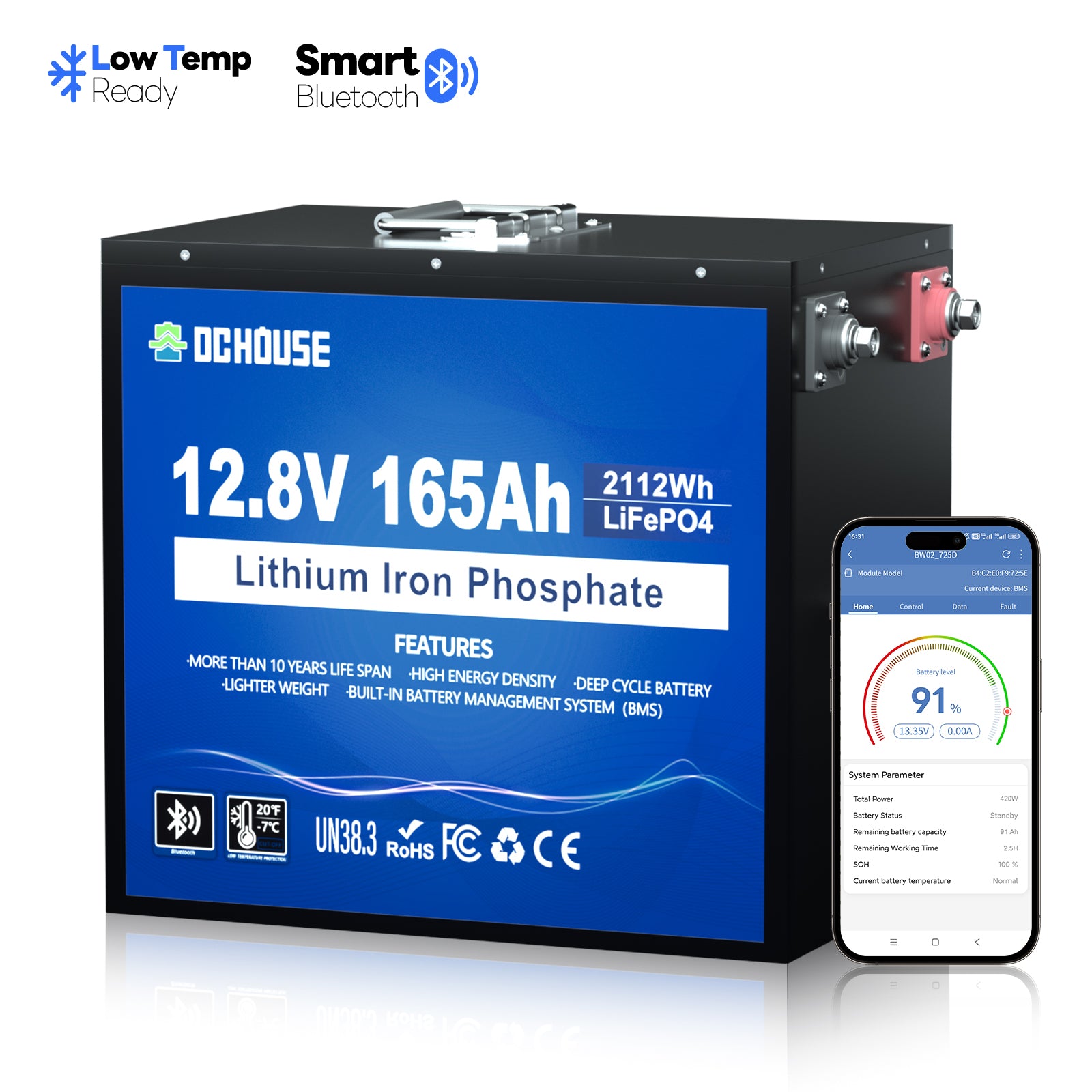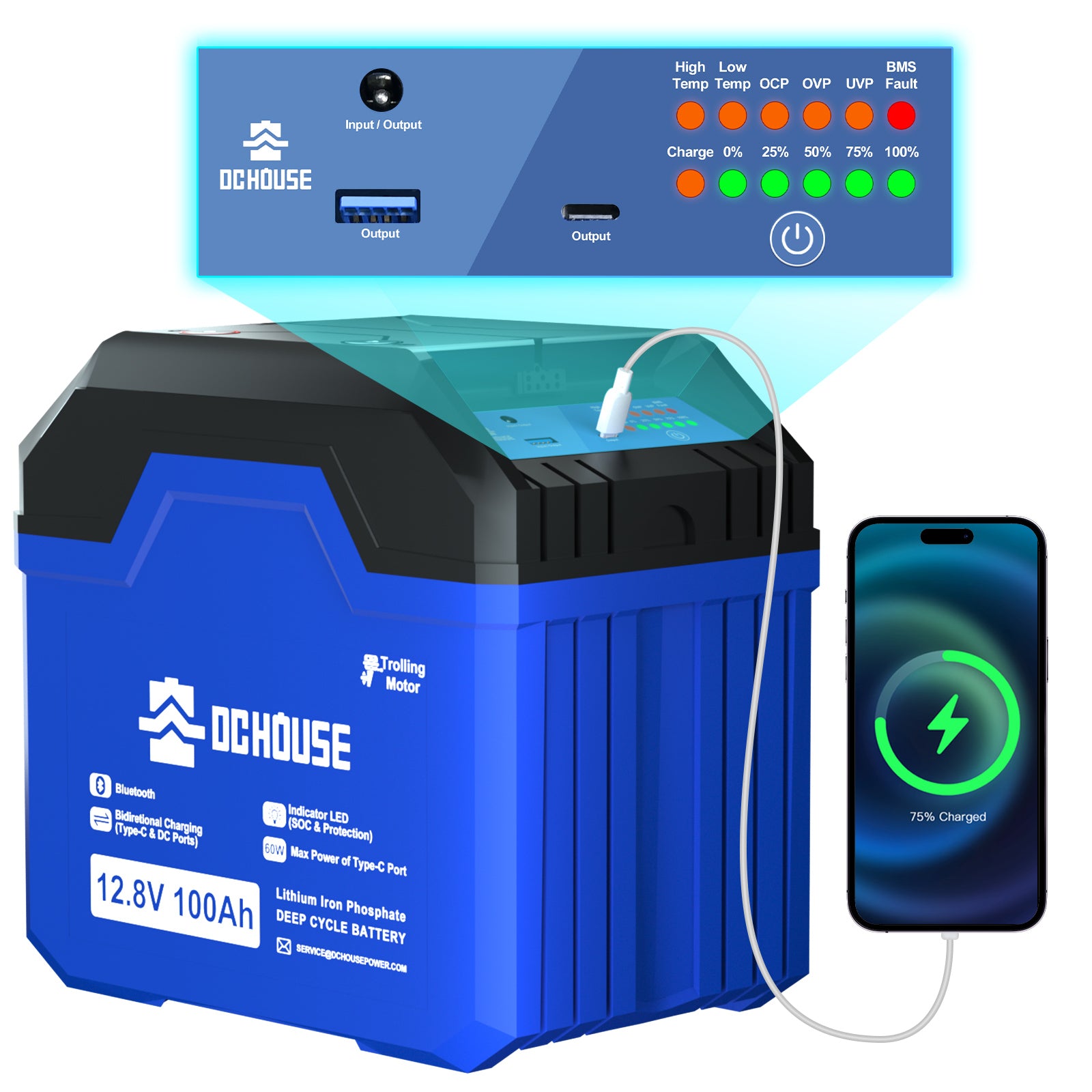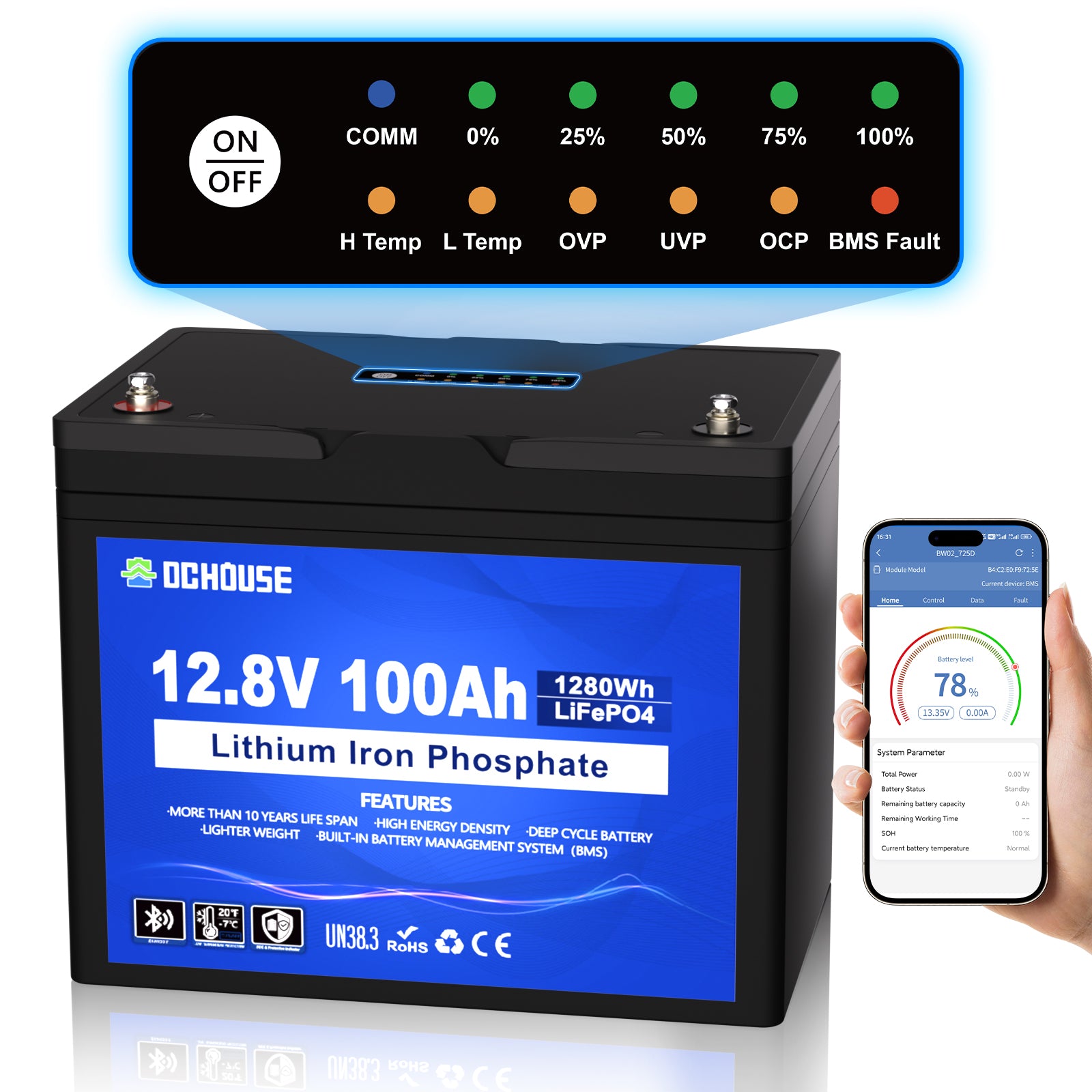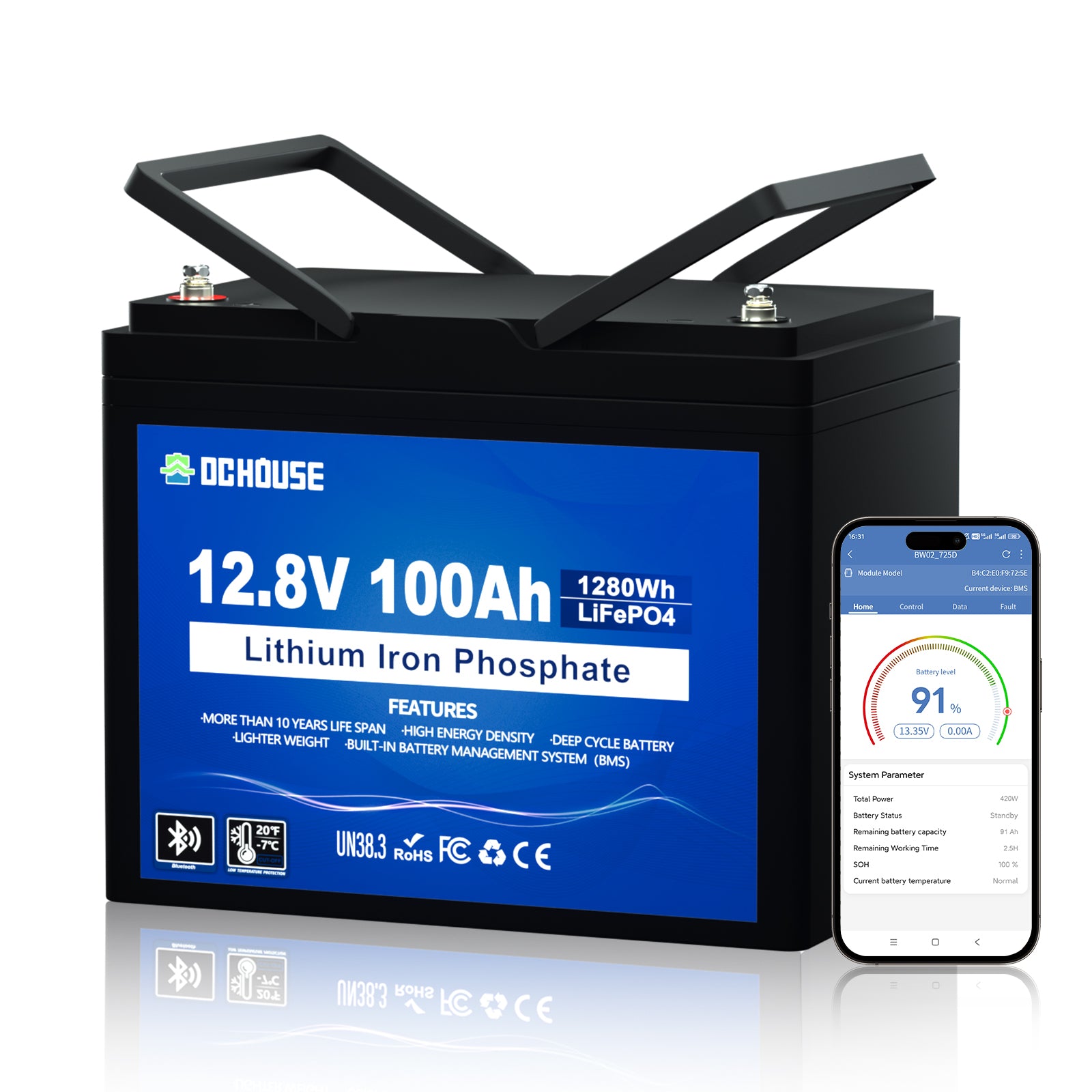Is a 48V battery better than a 12V battery?
In the context of the rapid development of modern science and technology, the trend of electrification and intelligence has promoted the continuous advancement of battery technology. Among the many battery options, lithium batteries have become a widely used choice due to their high energy density, long life and low self-discharge rate. However, when we are faced with the choice of lithium batteries with different voltages, such as 48V and 12V, choosing the right voltage is equivalent to choosing the performance advantages that suit the specific application requirements. This article will deeply explore the advantages and disadvantages of lithium iron phosphate batteries at 48V and 12V in different application scenarios to help readers better understand and make decisions.
Ⅰ. Basic knowledge of lithium iron phosphate battery
As a type of lithium-ion battery, lithium iron phosphate battery (LFP battery) occupies an important position in the battery technology field with its high safety, long life and good thermal stability. Its core components include lithium iron phosphate (LiFePO4) as the positive electrode material and graphite as the negative electrode material, and the electrolyte is usually an organic solution or polymer gel. The following is a detailed introduction to the key characteristics and applications of lithium iron phosphate batteries:
1. Chemical composition and working principle
- Positive electrode material (lithium iron phosphate): Lithium iron phosphate is a lithium-ion battery positive electrode material with a unique structure. Its structural stability and electrochemical properties give the battery excellent safety and cycle life.
- Negative electrode material (graphite): Graphite, as the negative electrode material of lithium iron phosphate batteries, can effectively embed and release lithium ions, ensuring the efficient energy conversion and long-term stability of the battery.
- Electrolyte: The electrolyte plays a key role in conductivity and ion transport in lithium iron phosphate batteries. It is usually composed of organic solutions or polymer gels and can form a stable ion conductive channel between the positive and negative electrodes.
2. Advantages and characteristics
- High safety: Due to its chemical stability and structural design, lithium iron phosphate batteries have high safety, are not prone to thermal runaway and explosion, and are suitable for applications that require high safety.
- Long cycle life: Compared with other lithium-ion battery types, lithium iron phosphate batteries have a longer cycle life and can withstand more charge and discharge cycles without losing performance.
- Good thermal stability: The battery has good stability in high temperature environments and is not prone to safety hazards caused by temperature changes. It is suitable for applications in high temperature areas or high temperature environments.
3. Application areas
- Electric Vehicles (EV): Lithium iron phosphate batteries are widely used in electric vehicles, ensuring the reliability and long-lasting performance of electric vehicles due to their high safety and long cycle life.
- Long cycle life: Compared with other lithium-ion battery types, lithium iron phosphate batteries have a longer cycle life and can withstand more charge and discharge cycles without losing performance.
- Industrial applications: including power supply for industrial equipment, battery components for mobile devices, etc. Due to its high energy density and stability, it is suitable for a variety of industrial scenarios.
Ⅱ. Analysis of the advantages, disadvantages and application scenarios of 12V lithium iron phosphate batteries
1. Advantages:
- Mature technology and stability: As a lower voltage system, the 12V lithium iron phosphate battery has relatively mature technology, is widely used, and is stable and reliable.
- Suitable for traditional applications: 12V voltage is widely used in traditional applications such as automobiles, ships, power tools, etc., so it has good market adaptability and acceptance in these fields.
- Relatively low cost: Due to market competition and mature production technology, 12V lithium iron phosphate batteries usually have lower production costs and are suitable for large-scale market applications.
2. Disadvantages:
- Mature technology and stability: As a lower voltage system, the 12V lithium iron phosphate battery has relatively mature technology, is widely used, and is stable and reliable.
- Energy density and efficiency: In some modern applications that require high energy efficiency and long battery life, 12V systems may be energy inefficient due to high current.
3. Application scenarios :
(1) Power tools and portable equipment
- Lightweight Design: 12V lithium iron phosphate batteries are ideal as a power source for power tools and portable devices due to their relatively small size and weight.
- Long life: Able to withstand frequent charge and discharge cycles and provide stable power output.
(2) Small solar energy storage system
- High stability: In the small solar energy storage system, the 12V lithium iron phosphate battery can stably store and release the electrical energy converted from solar energy.
- Environmental protection and energy saving: Compared with traditional lead-acid batteries, lithium iron phosphate batteries are more environmentally friendly, have higher energy conversion efficiency and longer service life.
(3) UPS (Uninterruptible Power Supply) System
- Reliability and stability: In the UPS system, the 12V lithium iron phosphate battery provides continuous power support, ensuring that the equipment can smoothly transition to backup power when power is cut off.
- Fast charging: Lithium iron phosphate batteries charge quickly and are suitable for dealing with sudden power demands.
(4) Boat and RV power systems
- Strong adaptability: 12V lithium iron phosphate batteries have good adaptability in the power systems of boats and RVs, and can provide stable power support under different environmental conditions.
- High durability: Able to withstand shock and vibration, suitable for the power needs of mobile devices.
(5) Smart home devices
- Low power consumption: For smart home devices such as sensors, surveillance cameras, etc., 12V lithium iron phosphate batteries provide sufficient power and can operate stably for a long time.
- Durability: The long cycle life and stable voltage output of the battery ensure long-term and reliable operation of the equipment.
Ⅲ. Analysis of the advantages and disadvantages of 48V lithium iron phosphate battery
1. Advantages:
- Enhanced power output and efficiency: The 48V lithium iron phosphate battery system is able to provide higher power output while improving energy efficiency by reducing current density, which is particularly suitable for applications that require high power output for a long time.
- Supporting the integration of new technologies: High voltage systems are more conducive to the integration of new technologies, such as energy recovery and smart grid connection, which are of great significance in improving energy efficiency and environmental friendliness.
- Adapt to future needs: With the development of electrification and intelligent technology, 48V system is expected to become the standard choice for more applications in the future, such as electric vehicles, industrial equipment and large energy storage systems.
2. Disadvantages:
- Cost and complexity: 48V systems are generally more expensive and technically complex than 12V systems, which means higher investment and technical support may be required in some applications.
3. Application scenarios :
(1) Electric vehicles (EV) and hybrid electric vehicles (HEV)
- High power output: 48V lithium iron phosphate batteries can provide sufficient power output and are suitable for electric drive systems in electric vehicles and hybrid vehicles.
- Long cycle life: It has good charge and discharge cycle characteristics, and can support long-term use and efficient energy conversion.
(2) Industrial applications and energy storage systems
- Reduce costs: The 48V system can reduce the current of the battery system compared to the low voltage system, which can save some costs.
- Strong reliability: It can provide stable power support in industrial environments to meet the needs of long time and high power output.
(3) Communication base station
- Backup power supply: 48V lithium iron phosphate batteries are used as backup power supplies in communication base stations, which can quickly respond to power outages and provide continuous power support.
- Environmental adaptability: Able to operate stably under different climatic conditions and meet the requirements of long-term operation of communication equipment.
(4) Large electric tools and mechanical equipment
- High-efficiency output: The 48V battery system can provide efficient power output in large power tools and mechanical equipment, supporting high-intensity work and long-term operation of the equipment.
- Durability and reliability: Able to withstand vibration and shock of mechanical equipment, maintaining stable performance and long life.
(5) Large solar and wind energy storage systems
- Energy Storage: 48V lithium iron phosphate batteries are suitable for large solar and wind energy storage systems, and can efficiently store and release renewable energy.
- Environmental protection and economy: It is more environmentally friendly than traditional lead-acid batteries, has high energy conversion efficiency, and reduces the overall cost of the energy system.
(6) Power grid support and microgrids
- Grid storage: In power grid support and microgrids, 48V lithium iron phosphate batteries can provide stable power reserves and short-term load balancing capabilities.
- Intelligent management: Supports intelligent battery management system, which can dynamically adjust power output and charge and discharge control according to grid demand.
Ⅳ.Conclusion
Whether you choose a 12V or 48V lithium iron phosphate battery, the key is to understand your specific needs and application environment. If you need a smaller size and lower power output, a 12V battery may be more suitable, such as a portable device or a small motor. For applications that require greater power output and longer endurance, a 48V battery is more suitable, such as electric vehicles or industrial equipment. Therefore, a 48v battery is not necessarily better than a 12v battery. Choosing the right battery should be a comprehensive consideration that requires balancing performance, cost, and available space to ensure the best power solution.













 UK
UK
 DE
DE
 FR
FR
 CA
CA
 ES
ES
 IT
IT


